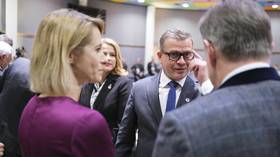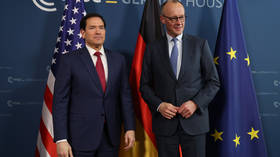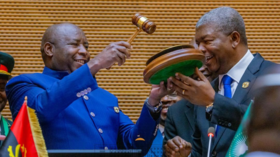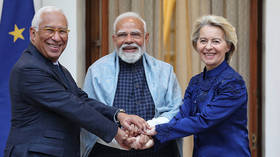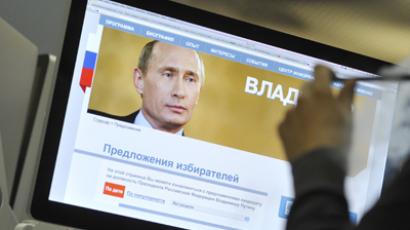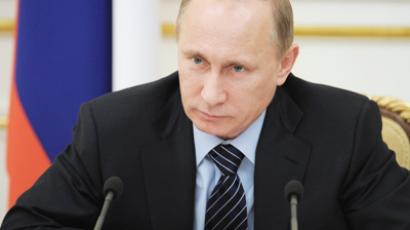Democracy and the quality of our state
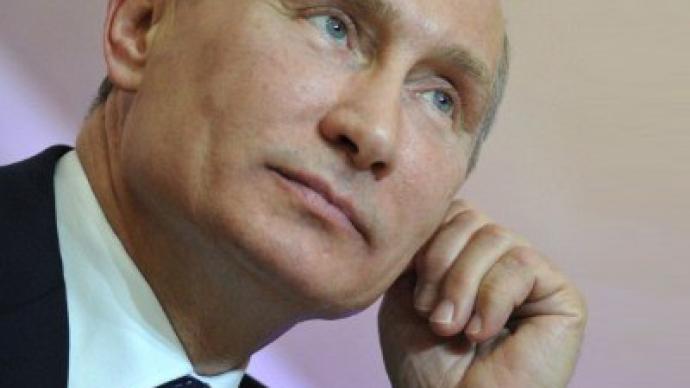
In a newspaper article Vladimir Putin describes on the evolution and the future of democratic institutions in Russia.
Read the full Kommersant Daily article by Vladimir Putin below.Society cannot have sustainable development without a viable state, and, conversely, genuine democracy is an indispensable condition for building a state that serves the interests of society.Genuine democracy cannot be produced overnight. You cannot just copy it by reproducing somebody else’s model. Society has to be ready for democratic mechanisms. Most of the people should consider themselves citizens, meaning they should be willing, on a regular basis, to give their attention, their time and their energy to participate in administrative work. In other words, democracy only works when people are willing to invest something in it.In the early 1990s, our society was inspired by the collapse of the autocratic Soviet one-party system, which was happening before people’s eyes. People were inspired by the transition to democracy, which seemed so near, especially since examples of civilized, mature democracy were so near – in the US and Western Europe. Yet the introduction of democratic forms of governance almost immediately resulted in stopping the necessary economic reforms, and a little later those forms themselves were taken over by local and Moscow-based oligarchic elites, who shamelessly used the state for their private interests and pocketed the wealth that belonged to the people.I know from experience that even in those days there were many honest and intelligent people in the government. They genuinely cared about the common good. Thanks to them, the state did not perish. Daily problems would be more or less resolved, and some urgent reforms were conducted, even if inconsistently and slowly. But on the whole the system proved to be stronger than they. As a result, what we got in the 1990s with the supposed coming of democracy was not a modern state. What we got was turf wars between various clans and lots of semi-feudal fiefdoms. Instead of a fundamentally new level of living, we faced tremendous social losses. Instead of a fair and free society, we had the lawlessness of self-appointed “elites,” who openly disregarded the interests of common people. All that has poisoned Russia’s transition to democracy and a market economy, making many Russian people wary of these very concepts – and unwilling to participate in public affairs.Russian philosopher and jurist Pavel Novgorodtsev gave the following warning back in the early years of the 20th century: “People often think that the proclamation of various freedoms and universal suffrage in itself has some magic power that can set people on a new path. But what it leads to in reality is often oligarchy or anarchy, not democracy.”In the 1990s, we encountered both anarchy and oligarchy. That period saw the extreme shortage of responsible statesmanship. It would be naïve to think it was all because of greedy oligarchs or dishonest officials. In the early 1990s, our society consisted of people who were free from Communism but had not yet learned to take their lives into their own hands. They still expected the state to take care of them. They often lived in their illusions and did not know how to resist when being manipulated. Because of that, for some time both economic and political affairs were dominated by the improper principle where the more daring people get the lion’s share of the pie. But our society has passed through a difficult maturation process. This enabled us all to pull our country out of the mire, revive the state and restore the peoples' sovereignty, the foundation of genuine democracy.I would like to stress that we achieved all this through democratic, constitutional means. The policies we pursued in the 2000s consistently reflected the will of the people. Elections confirmed this time and again. In fact, this was also confirmed by opinion polls between elections.If we take a look at the list of rights that our people deem essential, the rights they treasure the most are by far the right to work (the possibility to earn a living), the right to free healthcare, the right to education for children. To restore and secure these fundamental rights was the task that the Russian state has been working on. Dmitry Medvedev and myself, as presidents, have been working on that.Today, our society is very different from what it was in the early 2000s. Many people have become more wealthy, better educated and more demanding. The fact that people expect more from authorities today, and that middle-class people have gone beyond the small universe of building their own prosperity, is a result of our efforts. We have been working towards that goal.Political competition is the heartbeat of democracy, its driving force. If such competition reflects the real interests of various social groups, it makes the state much, much stronger – in developing the economy, in mobilizing resources for social projects and in securing protection and justice for people.Today, the quality of our state does not match civil society’s readiness to participate in it. Our civil society has become much more mature, active and responsible. We need to renew the mechanisms of our democracy. They should have the capacity to match increased public activism.
On developing democracy
A whole package of proposals for developing our political and party system was submitted to the State Duma recently. They will simplify the procedure for registering a political party; they will waive the requirement to collect signatures in order to participate in State Duma or regional legislative assemble elections; they will reduce the number of signatures one must collect in order to register as a presidential candidate.The registration procedure, regulations for political parties, electoral techniques – all these things are important, of course. The political climate, just like the investment climate, requires constant improvement. But we should also pay special attention to the way our political mechanism account for the interests of various social groups.I strongly believe that we do not need the circus of various candidates competing with each other to give more and more unrealistic promises. We don’t need a situation where all that is left of democracy is the façade, where democracy is understood as a one-time entertaining political show and candidates’ casting, where substance is forgotten for the sake of shocking statements and mutual accusations, where real politics is reduced to shady deals and decisions made behind the scenes but never discussed with voters. We should avoid this blind alley. We should resist the temptation to “simplify” politics, to create a false democracy merely to please somebody. Of course, there is always some room for special techniques in politics. This cannot be avoided. But spin doctors and image makers should not control politicians. In fact, I think that our people will not buy that any longer.We need to tune the mechanisms of our political system in such a way that it will account for, and reflect, the interests of major social groups and publicly reconcile those interests. In addition to providing a legitimate government, our political system should guarantee that people see it as fair – even when they are in the minority.We need a mechanism that allows people to nominate responsible candidates – professionals who care about national development and who can achieve definite results – for positions at various levels of government. We need a clear, quick and transparent mechanism for preparing, making and implementing both long-term and short-term decisions.We need to create a political system where it is possible – and necessary – to be honest with people. Whoever offers a solution or a program should be responsible for implementing it. Those who elect decision-makers should realize for whom and what they are voting. This will produce trust, constructive dialogue and mutual trust between society and the government.
New mechanisms of involvement
We need to be able to react to society's needs, which are growing more and more complicated and gaining totally new traits amid the 'data age' we live in.An enormous and ever-growing number of Russians are getting used to obtaining information instantly, at the push of a button. The free and, more importantly, uncensored accessibility of information on the situation in the country naturally determines the people's demand to be involved in politics and administration permanently, not on an election-to-election basis.Therefore, today's democracy – as the power of people – cannot be confined solely to going to the polling station, and end there. Democracy, in my view, lies in the fundamental right of a nation to choose its authorities, as well as in being able to constantly influence both the authorities and their decision-making process. Thus, democracy should have mechanisms for direct and constant action and efficient channels for dialogue, public control, communication and feedback.What is feedback, in practical terms? The ever-increasing quantity of political information should evolve into a quality of political involvement and civil self-government and control. Above all, this means wide discussion of bills, decisions, and programs taken on every level of state power, and the evaluation of existing laws and their efficient application.Citizens and professional and public unions must be able to 'beta-test' all state documents. Even now, constructive criticisms from professional communities such as businesspeople, teachers or scientists help us avoid poor decisions and find better ones.For example, last year during the evaluation of the 'regulating impact', carried out jointly with the business community, nearly every other regulatory project was turned down as 'worsening the conditions for Russia's economic development." It is a good thing that such a filter is now in action, and we should make sure it fully encompasses all the spheres that are important for the business community.The language of legislation must be improved. It should be made at least understandable by those the regulations are aimed at, if not harmonious (in the ancient world, laws would often be written in verse to facilitate memorization). It is important to create user-friendly, interactive interfaces for public authorities' web portals, so that their plans and programs can be fully available, they can be publicly discussed, and their implementation monitored. I would like to ask professional philological communities and web designers to help the state with that. Such a contribution will be greatly appreciated by history.Next, we must understand that one of the key trends in today's world is the further complication of society, with the needs of various professional and social groups becoming more and more specific. The state has to rise to this challenge to meet the complex social reality. An important measure here is the development of self-regulatory organizations, whose powers and capabilities must grow. On the other hand, those organizations themselves should use the powers they have more actively. I mean, in particular, the right to develop and submit for approval technical norms and national standards in corresponding sectors and professions.We must avoid the bureaucratization of self-regulatory organizations and prevent them from erecting self-regulatory barriers (mostly in areas where inadmissible risks are absent or where security is already guaranteed through other state-enforced methods of regulation). This demands the total informational openness of SROs and regular public reports to society and market players. I expect self-regulation to become a cornerstone of Russia's strong civil society.We already publicize proposed laws on the Internet, where everyone can make suggestions or propose amendments. Each is considered, and the best and most relevant ones are included in the final version. This mechanism of collective search for optimal solutions, or crowdsourcing as specialists call it, must become the norm on all levels.All these steps, however, only help to exercise a passive right, meaning a citizen's right to respond to various ideas and projects proposed by the authorities, who are the only source of legislative initiative in this case. But we need to provide for the active right, which is to give people the chance to shape the legislative agenda by proposing their own bills and expressing their own priorities.In this regard, I suggest introducing a rule for a mandatory revision in Parliament of those initiatives that collect one hundred thousand or more signatures on the Internet. A similar rule works in the UK, for instance. Certainly the anonymous Internet cannot serve this purpose, even though in a number of instances it helps discover the moods of society. A procedure should be developed for the official registration of those who want to participate in this system.An Internet democracy should be integrated into the overall development of institutions of the referendum democracy, and it should be particularly extensively applied at the municipal and regional levels. In each municipality, heads and deputies of municipal assemblies shouldn't be the only officials appointed by direct election. Public evaluation should also be given to other officials taking key positions. For instance, district residents should be given an opportunity to express their opinion on the performance of the head of the district police station after his first year of work; whether they want to see this man continue doing his job in their district. The same way, the question should be raised about the head of the local housing and utilities service; and about the justice of the peace, unless he is elected by citizens.Citizens at the city and municipal levels should be given the opportunity to vote and to bring up their topical problems at local referendums or Internet polls, and pinpoint their issues and ways of resolving them.Changing the work of public councils in executive authority bodies is an important task. Presently, their operation is rather formal, or demonstrational, plainly speaking. We must give up the departmental approach in establishing these kinds of councils; for instance, their membership should be approved by the Public Chamber of Russia, and for regional bodies, by the corresponding public chambers. Public councils should stop being a convenience for department heads. We should make sure they include truly independent experts and representatives of the NGOs concerned. We should establish a set of standard regulations and programs that cannot be adopted without prior public discussion at the public council. Public councils may be authorized to participate, equally with the corresponding authorities, in the operation of competition and certification commissions, as well as commissions on settling conflicts of interest.Several words on the prospects of the Electronic Government project. Presently, our citizens have access to all information on political debates in the Parliament, on world markets, and on the marriages and divorces of Hollywood celebrities. What they can't do in the Internet, however, is get data on their utility bills, review their medical files, or find out the name of their district police officer.The official website on state procurement tenders has already become a powerful counter-corruption mechanism. Many of the state services are now available online, which is good. But most people need information that's relevant for them: on their homes, nearby areas, neighboring parks, schools, or their municipalities.Particular attention should be paid to the foundation of electronic authorities, namely, websites of municipalities and regions.I suggest that during this year, the Public Chamber and the Presidential Council on Civil Society and Human Rights develop, discuss publicly, and introduce draft lists of information for customers to be made available obligatorily on the websites of educational and medical institutions.The Electronic Government project should be aimed more precisely at the needs and requirements of the people. Information on the operation of state and municipal authorities should be disclosed as fully as possible. By means of informational technologies, the state mechanism should be made comprehensive and accessible to the public.
Local Self-Governance: A School of Democracy
Alexander Solzhenitsyn wrote on the significance of self-governance: “It is the only format where people would be able to unerringly select nominees they know well, both as professionals and as personalities. False reputations would not stand a chance here, nor would sly rhetoric or partisan recommendations… There can be no decent and sustainable life without a well organized local self-government, and the notion of civil liberty itself would become meaningless.” This quote conveys a most accurate observation: nationwide democracy stems from democratic localities. Local self-governance educates citizens in responsibility. It is also a kind of a vocational school for aspiring politicians, as it encourages the key skills essential in politics, such as the ability to find common ground and broker a deal with various social and professional groups, to be coherent in communicating your ideas to the public, and to represent and advocate the rights and interests of one’s constituents. I believe that local self-government is exactly where politicians and public executives should get their schooling.As far as specific measures for enhancing the efficiency of local self-governance are concerned, first of all, local authorities should remain local: that is, municipalities should avoid excessive expansion and ensure that they are easily accessible. Secondly, municipalities should become entirely self-sufficient and autonomous, in financial terms. They should have substantial funding sources to provide for performing their functions and dealing with the day-to-day issues of their constituencies. They need to end their addiction to handouts from higher authorities, which undermines their self-reliance, restrains initiative and encourages a free-rider attitude. In essence, such dependency defeats the very purpose of municipal governance.In this respect, I suggest that municipalities be entitled to manage all the taxes collected from small businesses, which are currently subject to preferential taxation. Certainly, we will need to find the right balance between the competencies of municipalities and those of regions. Should municipal authorities be provided with greater financial resources, the scope of their responsibilities vis-à-vis their local residents may also be expanded.Greater economic independence is particularly crucial for large and medium-sized cities. This is where most of the nation’s economic potential and its most enterprising citizens are located. Cities are the powerhouses for economic growth, as well as centers of civic activity. In transferring a great deal of competencies and financial resources from the federal center to the regions, it is important to make sure that this will not result in municipalities being exposed to arbitrary control by senior regional officials.It is no less important to promote partnership relations between regional governors and mayors, and between regional and municipal legislatures. It is no secret that their relations are often dispute-ridden, and such tensions might escalate once the direct election of governors is introduced. This is especially bound to happen in a situation where a regional government is dominated by one party, and a city administration by another.We must do away with the practice whereby regional authorities impose certain performance benchmarks for local administrations and make financial support conditional on the latter’s compliance. Municipal administrations should be primarily accountable to their constituents.Small towns, which are home to a significant share of our population, represent a separate and often a very troubled issue. Such localities often lack sustainable sources of income and are forced to live off subsidies from the regional budget. At the same time, a small township may provide an excellent venue for practicing municipal democracy. People in such localities know each other very well, and all local institutions operate in full public view rather than behind closed doors. I believe we should ensure that such municipalities are provided with lost-standing and stable sources of subsistence, which implies that regional subsidy rates should be stable and known in advance. We must guarantee small townships against a situation where a mayor is predominantly occupied with soliciting money from the regional budget, while the task of assessing the mayor’s performance rests with higher authorities rather than the constituency. Provided that we accomplish this task, we would be able to anticipate the emergence of a new generation of politicians and efficient administrators.
Russian Federalism
One of our pivotal tasks in the early 2000s was countering blatant separatism as well as its latent, subtle varieties, along with breaking up the convergence between certain regional authorities and organized crime or nationalist groups. By and large, this mission has been accomplished. Today, at a new stage of development, we are reintroducing the direct election of governors. At the same time, the President of Russia will retain certain instruments of oversight and management, including the right to dismiss governors. This will enable us to strike the right balance between decentralization and centralism. The federal center should be capable of both assigning and redistributing competencies. And not only competencies, but also funding sources for municipal and regional budgets. However, we must ensure that the country will not become uncontrollable in the process. Government authority is not to be squandered. It would be unacceptable to mindlessly reshuffle resources and competencies among the various levels of power. Neither centralism nor decentralization should be followed blindly as a fetish. The distribution of governing competencies among the various levels of power must be based on clear criteria: any specific function shall be assigned to the level of power that is most capable of performing it with the best efficiency and to the greatest benefit of Russia’s citizens, business activity and overall development. It is also obvious that the trend of consolidating regions within the Federation has not exhausted its potential by a long shot. However, any progress in this area must be expedient and well-advised, with public opinion playing a major role in deliberations. We should also bear in mind that Russia’s various territories are diverse in terms of social and economic development. They also belong to various cultural environments, which cannot be compared to one another in terms of being “better” or “worse.” People’s lifestyles are determined by their specific traditions, customs and models of behavior. Therefore, we have certain assets of unquestionable value, namely the powerful consolidating factors such as the Russian language, the Russian culture, the Russian Orthodox Church as well as Russia’s other customary religions. And of course, there is the longstanding experience of positive and creative coexistence within a single Russian state, which dates back centuries. This experience proves most evidently that Russia needs a strong, capable and authoritative federal center, which plays a key stabilizing role in the framework of inter-regional, inter-ethnic and inter-religious relations among the various communities that make up our country. With that in mind, it is our historic task to promote Russian federalism to its full potential and provide an enabling environment for the robust development of each region.
Building a competitive nation
In today’s globalized world, it’s all about different countries competing for ideas, talent and capital, which in the long run means competing for the future of their nations in the new, global environment that has emerged.We need to make a shift in the mindset of public service to build a prime competitive environment for living, creating and doing business in Russia. All government agencies and institutions must be geared to this purpose. We must keep in mind that the Russian people, and entrepreneurs in particular, are aware of how things are done in other countries and have the right to go for the best option.It’s crucial to focus on the following key priorities.First, we must break the tie-up between power and property and set a clear line of demarcation defining the limits of government involvement in the economy. I mentioned this in my article on the economy.Second, we should introduce, on a nationwide basis, the best viable practices of the leading nations concerning how their state institutions function. The decision on the adoption of specific patterns should be made with regard to proven effectiveness – they should make applications for government services more comfortable, convenient, and time and cost-efficient. In this regard, we should bring our service standards in line with international benchmarks.Third, we will promote competition among state managers – governors, mayors and officials – at all levels and whenever it is appropriate. The government should supervise, identify and introduce the best practices of state governance. The best solutions will be widely put in practice at the national level, and – for the notice of voters – at the regional and municipal levels, too.Fourth, we should switch to next-generation state services – those tailored not to the executor but to the consumer – be it a private firm bringing its goods through customs, a person getting an official paper or a car driver filing an accident report.Government department and agency web sites should make it clear for people what kind of services such bodies provide, how citizens can access them and what responsibilities each official holds.Fifth, we have just passed a new law giving us the tools to assess officials’ performance and liability for failure to meet high standards in providing state services to entrepreneurs and other groups. If someone does not abide by the standards, they should be fined. I suggest taking this a step further by toughening the law in terms of punishment – a gross violation or repeated digression from standards should mean disqualification, and the person in question should not only be fired, but also barred from holding a state or municipal office for several years.Sixth, the challenges of state governance need to be dealt with by public employees with the appropriate qualifications and expertise. We must introduce a new wage system that will be flexible enough to adapt to shifts in the labor market and to changes relevant to specific professions. This is paramount to enhancing the cadres of public officials, attracting new responsible and effective managers.Seventh, the institution of ombudsmen will be further expanded by making it more professional and to cover more specific areas. I believe that the position of a business ombudsman should be set up in every Russian region.
We must root out corruption
Red tape and bureaucracy have never been a source of national pride in Russia. Historians will remember a conversation between Tsar Nicholas I and his chief of secret police Alexander Benckendorf, when the former announced he wanted to stamp out graft, and got the following question in return, “Do you think there will be anyone left around you?”All talk of corruption in Russia is trivial. In our history, there’ve been attempts to curb corruption through repression. Of course, the fight against bribery relies on repressive measures. But the problem is much more profound – it comes from the lack of transparency and accountability of government agencies to society, which I mentioned earlier, and the poor motivation of public servants. These are the areas that present enormous challenges.In the turbulent 1990s teenagers dreamed of becoming oligarchs, but now they opt for state official, according to opinion polls. Many view public service as a source of fast and easy cash. If such motivation persists, if people join public service not to serve but to live off it, then any purges would be useless – exposed thieves would be replaced by others.To get the upper hand in the fight against systemic corruption, we need to divide not just power and property but executive power and the system of checks over it. Political responsibility for the drive against corruption should be shared by the authorities and the opposition.It would be proper to make legislative changes to how candidates for chairman and auditors of the Audit Chamber are nominated, as well as to the way some members of the Public Chamber are appointed. Candidates must be nominated not by the president, as it is now, but by the Council of the State Duma, with approval of all factions.I believe it’s high time for members of the State Duma to make the practice of parliamentary investigations an effective procedure.The fight against corruption must become a national course, not a matter for political speculation, an object of populist statements, political exploitation, a goal of short-term campaigns. Primitive decisions, like a call for mass repressions, are not a solution. Those who cry of rampant corruption and demand retribution fail to comprehend that in a corrupt environment, repression could also become subject to corruption. And the scale would be horrific.We offer real, systemic solutions that will ensure a far more effective rehabilitation of state institutions and the use of new principles in our staff policy – in the selection and rotation of officials and their compensation. Eventually, our goal is to make reputational, financial and material losses so great that corruption would no longer pay.I believe we should identify corruption-prone positions both within the executive power and the management of state corporations. An official in charge of such a position should be eligible for a high salary but should agree to absolute transparency. They should declare their expenses and big family purchases, current place of residence, how they pay for vacations, etc. We should consider introducing some of the anti-corruption measures adopted in Europe – they have great expertise in that area.We can now give a definite reply to Benckendorf’s question – we know who’ll stick around. There are many of them – both within and beyond public service.There are many professionals who’ve been toiling all their life just for the salary in federal and municipal agencies. They are offended when journalists label every official a corrupt one. Just think of the many people – honest and effective – who are discouraged from public service by such rhetoric.I believe both society and the mass media should give justice to the group of employees who are honest in performing their work. Public opinion should focus on the cases where there is sufficient evidence of corruption schemes. This will ensure that such court cases are not stuck mid-way.A real action plan against serious corruption will help us to tackle the petty corruption that people face when dealing with police, courts, housing and utility services, medicine and education.We will act consistently, reasonably and with determination. We will remove the fundamental causes for corruption and punish particular officials. We will boost motivation for those who want to serve Russia in good faith. We have always had plenty of such people, and they will be given a chance.We have defeated oligarchy, and we will defeat corruption.
Reforming the court system
The main issue lies with the conviction-prone, punitive character of our court system.We must tackle it by adopting the following steps.First, we will make justice available to people by introducing administrative proceedings not only for businesses but also to hear disputes between people and officials. According to the spirit and meaning of administrative proceedings, an ordinary person is more vulnerable than the official they are in dispute with, and the burden of proof lies with the administrative agency, not the individual. This is why the practice of administrative proceedings has originally been oriented to protecting the rights of individuals.Second, social movements will gain the right to file lawsuits to defend the interests of their participants. In this case, an individual can resolve a dispute with a governor, for example, on behalf of a large social organization, not on his own. We will extend the areas where joint lawsuits could be filed by individuals.Third, arbitration courts now have an open database of all court decisions. We need to set up a similar database for general session courts. We will think about making online broadcasts of court hearings and publications of verbatim records. It help us to assess the performance of every judge and track contradictions in decisions taken on similar cases but involving different parties, and to identify decisions which have not been guided by plain logic. Furthermore, elements of the precedent law will help to ensure the constant evolution of the court system.Fourth, we need to revive legal journalism to debate the legal issues facing society more widely, to improve the level of legal awareness.* * *In conclusion, I would like to underline that our proposals are practical. It’s these solutions that make the power of the people – democracy – a genuine one. It’s these solutions that make public service function in the interests of people. And together, they ensure that Russia and its people enjoy sustainable and successful growth.




